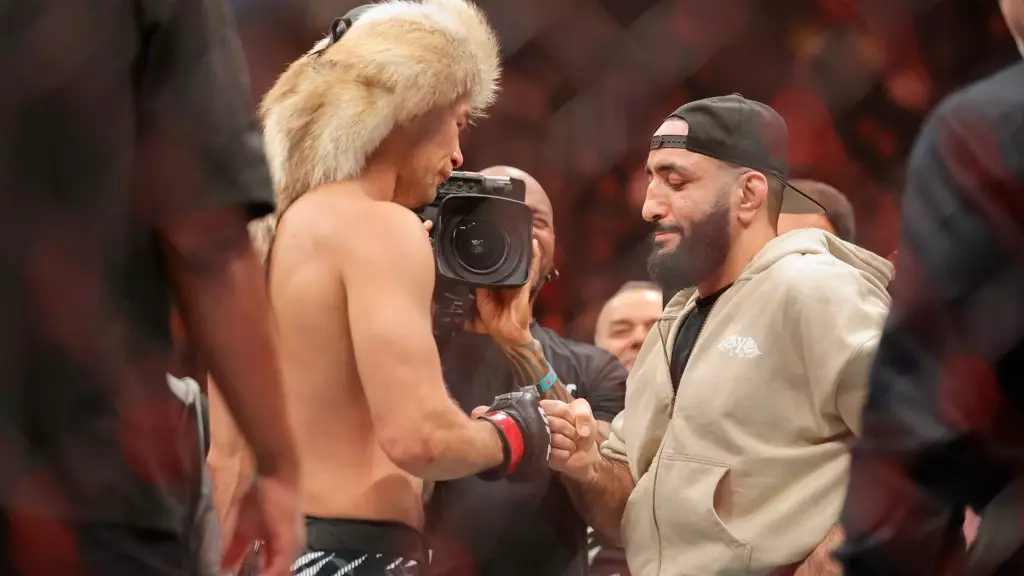The recent faceoff between Belal Muhammad and Shavkat Rakhmonov at UFC 310 has ignited a debate surrounding its effectiveness as a promotional strategy in mixed martial arts. The encounter followed Rakhmonov’s impressive victory against Ian Machado Garry in the co-main event, yet it was marred by awkward moments that left fans and commentators questioning its purpose. Daniel Cormier, a well-respected figure in the fight community, expressed his disapproval of the proceedings, citing both a language barrier and a lack of genuine interaction as key issues that detracted from the moment.
Cormier aired his views on a popular YouTube channel, emphasizing that the faceoff felt “weird” and failed to capture the energy expected from such encounters. The awkwardness was compounded by Joe Rogan’s ill-timed jokes about security not recognizing the champion, Muhammad, which only served to further highlight the disconnect in communication during the faceoff. A championship faceoff should ideally reflect mutual respect and anticipation; instead, it felt forced due to the presence of a translator, which diluted the essence of the encounter.
Faceoffs in combat sports are designed to create a narrative—a compelling story that builds anticipation for an upcoming fight. Cormier pointed to previous encounters, such as that between Alexander Volkanovski and Ilia Topuria, where a simple handshake created a lasting memory. These moments resonate with fans, providing a glimpse into the fighters’ mental states and their dynamics leading up to the matchup. A strong, authentic interaction amplifies both fighters’ narratives, ideally making spectators more invested in the contest. The instance with Muhammad and Rakhmonov, however, lacked this authenticity, overshadowed by a sense of disconnect and missed opportunities.
Additionally, Cormier highlighted Muhammad’s character as inherently respectful, further amplifying why the faceoff felt disjointed. Belal Muhammad, often criticized yet dignified, aims to present himself as a formidable champion. During faceoffs, this demeanor should ideally shine through, significantly impacting promotional efforts. The absence of meaningful exchanges rendered the event less memorable, failing to generate the buzz that can propel a fight into public consciousness.
The criticisms pointed out by Cormier reflect broader implications for fight promotion strategies within the UFC. A successful promotional faceoff requires a balance of respect, rivalry, and clear communication—all elements that were compromised during this event. For the UFC, fostering memorable moments is crucial for sustaining interest in their fighters and matchups. As fans, we often bank on these dramatic encounters to ignite our passion for the sport. When these moments fall short, it does a disservice not only to the fighters but to the audience craving the excitement of combat sports.
The UFC must take heed of the criticisms surrounding faceoffs and their role in shaping public perception and interest. Ensuring clarity and emotional connectivity during these encounters will be vital for future promotional success, particularly as the sport continues to evolve. The Muhammad-Rakhmonov faceoff may serve as a learning opportunity, reminding promoters of the intricate dynamics at play in fight promotions.

